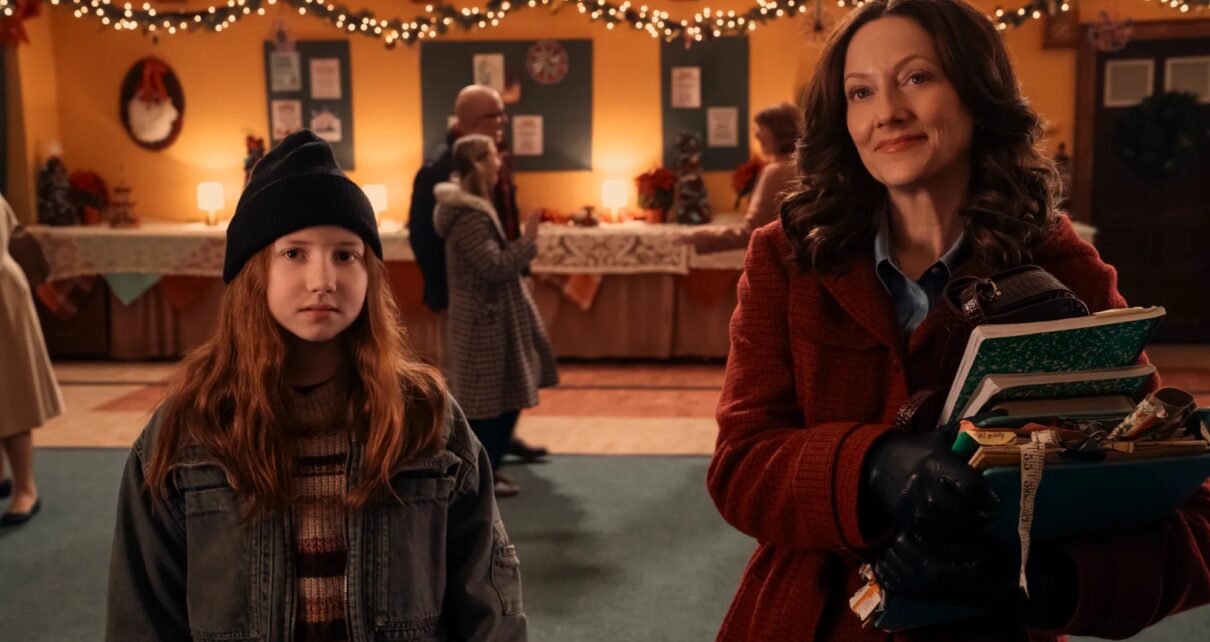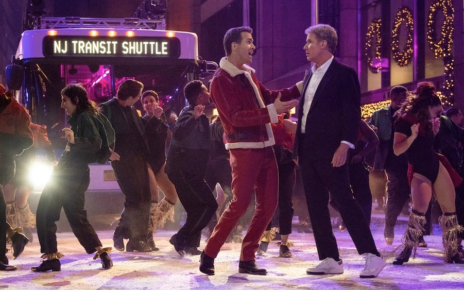Re-reading The Best Christmas Pageant Ever by Barbara Robinson is one of my favorite holiday traditions. The book delightfully expounds upon the Herdmans, a sextet of underage delinquents who bully the children and adults around them until they backdoor into an obsession with the story of the birth of Jesus and subsequently take over the annual Nativity play to the horror, and eventual delight, of all. Aren’t we all a little Christ curious?
The book is an easy read – it is humorous, short, and can probably be handled in the time it takes to watch the movie. One of the things I love about the book is the fairly clinical discussion of a tale we  all know so well. The Herdmans don’t care for religion, but this group of vandals, thieves, and thugs instinctively want to protect the baby Jesus from King Herod. You don’t have to be a Christian to want to protect a baby; it just makes you human.
all know so well. The Herdmans don’t care for religion, but this group of vandals, thieves, and thugs instinctively want to protect the baby Jesus from King Herod. You don’t have to be a Christian to want to protect a baby; it just makes you human.
This holiday season, the film version of the book came out, and while it mastered many of the details and humor the book shared, it, sadly, took not a neutral tone, but one that insisted the Herdmans would go straight to the path of Christian goodness upon delving into their Christ hobby. Personally, I think this a is serious misread of the book. Lemme back up.
The town is Emmanual, Anystate. The important part is the town is lily-white and the bad kids aren’t all that bad. I suppose every Christian community has that family. We had one, they had eleven kids, each one worse than the last. That may be why I loved this book. “Hey! I know that family! They were jerks to me!” In The Best Christmas Pageant Ever, that family is the Herdmans, an unsupervised group of bullies. Only there was something not-quite-menacing enough about the casting. I feel like the producers picked good kids who could play bullies rather than genuine bullies. Maybe you don’t see a difference; I do, because I LOATHE bullies.
The leader of the Herdmans is the eldest, a pre-pubescent cigar-smoking girl named Imogene (Beatrice Schneider). I feel like every film of this nature needs to point  out how much kids love church. IMHO, nothing could be further from the truth. Church is an obligation. If it is a calling, something is wrong with your child. Church for children is indoctrination. Period. Don’t fool yourselves; kids don’t give a crap about theology or the afterlife. The book understood that most of the kids liked church because “no Herdmans.” That was it. The movie thinks that our narrator’s brother is the only one who feels that way, when in reality, every kid feels that way. Well, one day the Herdmans take one dessert too many and the spiteful little punk taunts them with how church has much better desserts. [This is untrue, of course. I imagine this is actually not true everywhere and not just in the book/film, but I can’t be sure.]
out how much kids love church. IMHO, nothing could be further from the truth. Church is an obligation. If it is a calling, something is wrong with your child. Church for children is indoctrination. Period. Don’t fool yourselves; kids don’t give a crap about theology or the afterlife. The book understood that most of the kids liked church because “no Herdmans.” That was it. The movie thinks that our narrator’s brother is the only one who feels that way, when in reality, every kid feels that way. Well, one day the Herdmans take one dessert too many and the spiteful little punk taunts them with how church has much better desserts. [This is untrue, of course. I imagine this is actually not true everywhere and not just in the book/film, but I can’t be sure.]
Next day, the Herdmans show up at church in full force and while they get no dessert, they do steal some bucks from the communion plate and then get all curious when Intro-to-Maryology is introduced in the form of the Nativity story. What ensues is the Herdmans taking over the Nativity play, which is hilarious in theory and kind of touching on screen. And it all leads to the greatest sources of humor in the film as religion-challenged delinquents re-interpret the Nativity as they see it. Hold for laughs.
This is all innocent and decent and nice and maybe a 2.5- to 3-star story. But I have a serious problem with it.
You want to know the problem with this film? I’ll tell you: my problem with this film is that the people who made, promote, and enjoy this film about Christians looking past differences and accepting outsiders are -by and large- Trump voters, i.e. supporters of a man and a movement that defines itself by intolerance for outsiders. And we know this is true because 1) the Herdmans were truly more docile, relatable, tamable if you will, than, say, trans people and 2) the conclusion makes it clear that the Herdmans have adopted Christianity.
You see how that works? This is not a take of outsider acceptance into the fold, but one of conformity. The Herdmans are welcome to the group so long as they start thinking like group members … or how group members ought to be thinking. This is a huge difference between book and film. The book lets you decide what happens next: do the Herdmans become Christian, or return to their same horrible selves, alienated from the community? I see this as a turning point for the Herdmans as they finally show a collective empathy. But I no way interpret the ending as one where Imogene and the gang immediately become good Christians, because why would they? Church is still boring; it’s still and obligation. Why would kids who can’t sit through school suddenly sit through church every Sunday?
I like this story, but I hate this take. If you’re Christian and you’re so insecure about it that you need to see conversion on film, then go for it – here’s a film for you. But for realists out there, and especially those who cringe at the excesses, indulgences, hubris, and politicization of the modern Christian church, this is yet another example of a film you don’t need to see, albeit a better one than Letters to God.
In the white town of Emmanuel
There lived a fam evicted from Hell
Confronting them? Error
This septet trained for terror
Yet converting them is going just swell!
Rated PG, 99 Minutes
Director: Dallas Jenkins
Writer: Platte F. Clark, Darin McDaniel, Ryan Swanson
Genre: Movies that make you cringe a little
Type of being most likely to enjoy this film: The kind of person who sees an Angel Studios film for fun
Type of being least likely to enjoy this film: Non-Christians



